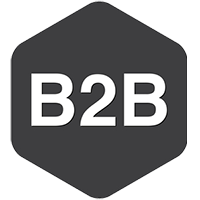How GenAI use is evolving for Google Cloud customers | Computer Weekly
 Koshiro - stock. adobe. com
Koshiro - stock. adobe. com
Financial services giant Goldman Sachs is among the household names confirmed to be using Google Cloud’s flagship Gemini and Vertex generative artificial intelligence (GenAI) technologies.
The public cloud giant’s annual user and partner conference, Google Cloud Next, showcased how its GenAI systems are being used by customers to create independent generative AI entities, dubbed agents, for a specific purpose.
Along with Goldman Sachs, ride hailing app Uber, motoring giant Mercedes Benz and online retail firm Wayfair are also using Gemini and Vertex to develop early versions of their own agents, as confirmed at the show.
Gemini is Google’s family of flexible, general-use AI models, similar to OpenAI’s GPT family of models. Vertex AI is Google Cloud’s AI development platform, for building and using generative systems.
During his Google Cloud Next keynote, Thomas Kurian, CEO of Google Cloud, said: “Customers have quickly gone from experimenting with generative AI, helping it to answer questions, make AI predictions, and are now building generative AI agents.
“Agents are intelligent entities that take action to help you to achieve specific goals – for example, helping a shopper find the perfect dress, helping an employee pick the right benefits, or having nursing staff being helped to expedite patient handoffs when shifts change. ”
Less than eight months ago, at Google Cloud Next 2023, the company announced that it would be taking steps to make AI more accessible to businesses and workers, and to help companies embrace the rapidly emerging technology of GenAI.
The opening keynote at this year’s global Next conference likewise revolved around Google’s generative AI systems, showcasing the capabilities of systems such as Gemini 1. 5 Pro and Imagen 2. 0, its new and improved text-to-image GenAI system, as well as details of how its AI infrastructure is being used by various partners and customers.
Kurian later said: “Together we’re creating a new era of generative AI agents built on a new truly open platform for AI, and we’re reinventing infrastructure to support it. ”
Goldman Sachs was the first of Google Cloud’s customers to present its use of generative AI at the event.
David Solomon, CEO of Goldman Sachs, said: “It’s been a fascinating journey recently with AI technology. We’ve seen rapid innovation and we’re now at a stage where practical application of the technology is showing the potential to yield real value for the business.
“At Goldman Sachs specifically, our work with generative AI has been focused on three key pillars: enabling business growth, enhancing client experience and improving developer productivity, and increasing operating efficiency across the firm. ”
He added that the firm was “already seeing signs of promise” in its experimentation, further encouraged by evidence that generative AI tools can boost developer efficiency and productivity by as much as 40%.
Solomon said: “We’re exploring different ways to use AI, whether to summarise public filings, extract sentiment and signals from corporate statements, or to gather and interpret information, like earnings reports. ”
Kurian compared the customer-oriented GenAI agents to “great sales and service people”, highlighting their ability to “listen carefully, understand your needs and recommend the right product”. He said they would be integrated into product experiences with voice and video.
Ola Källenius, CEO of Mercedes Benz, revealed the firm would be equipping its cars with high-end computers, using Google Cloud and AI to personalise user experiences.
The company is also looking to use the technology to develop a smart sales assistant system, improve customer service in call centres and optimise its marketing activities. Looking forward, it is exploring further AI opportunities, including the potential to integrate it into the navigational and automated driving features of its cars.
Källenius said: “For our next-generation internal development and test platform, we will use Google Cloud as the backbone, helping us to become even more efficient and flexible in our product development. ”
Kurian also spotlighted Samsung’s use of Google Cloud’s generative AI, while highlighting the fact the company already has AI-powered features – such as text summarisation and image editing – are available to users of its Samsung’s Galaxy S24 smartphone.
Other firms developing customer agents include Intercontinental Hotels Group, with an AI-powered travel planning system; ADT, which is building an agent to help customers select and set up home security systems; and Target, which uses AI on the website to personalise offers.
Companies such as Australian retailer Woolworths and Uber are using Google Cloud’s generative AI to develop employee agents and to increase productivity and efficiency of collaborative work.
Dara Khosrowshahi, CEO of Uber, said the company is an avid user of Gemini for Workspace, which brings Gemini’s generative AI features to Google’s staple applications such as Docs, Sheets, Slides and Gmail.
“Our partnership with Google Cloud is helping us create a stronger and more empowered workforce,” said Khosrowshahi. “Gemini for Google Workspace helps us save time on repetitive tasks, frees up developers for higher value work, reduces our agency spending and enhances employee retention.
“We’re also using Google Cloud’s AI platforms to build our own AI agents to help our support teams better help our customers. For frontline support we’ve launched new tools that intelligently summarise user communications and surface context from previous interactions. ”
Google Cloud is also improving Gemini for Workspace for its employees by introducing AI-powered functions such as note-taking, chat summarisation and real-time translation to its online meeting software Google Meets.
For employees in marketing or audio and video production, companies such as Carrefour, Canva, P&G and WPP are developing creative agents to support their teams with content creation.
Carrefour uses creative agents to help its marketing team generate advertising campaigns more smoothly, while Canva’s Magic Design allows users to skip the more tedious steps of video editing.
Alongside its creative agents, Google Cloud also announced Google Vids, an AI-powered app for Google Workspace that allows users to generate and customise video content using files in their Google Drive or relevant stock media.
Google Cloud’s customers are also designing various agents to streamline the processes of data analysis and application design.
Data agents that can be used to analyse and visualise data, as well as extrapolate it, are being used by firms like Bayer to develop digital medical solutions and drugs more efficiently.
NewsCorp said it is using Vertex AI to search data and update its systems across 30,000 global sources and 2. 5 billion news articles daily.
Brad Calder, vice-president and general manager of Google Cloud platform and technical infrastructure, said: “Data agents have the potential to unlock new ways to find and act on meaningful signals from data. They’re built with AI for complex analysis and they have to ensure factual integrity of their results. ”
Elsewhere, code agents are being used to help developers and product teams design, create and operate applications, as well as picking up new coding languages and code bases fast.
Fiona Tan, chief technology officer of Wayfair, one of the companies using code agents, said: “As a digitally native retailer, our tech platform is the bedrock of our growth. Our developers’ needs are top of mind for us.
“We strongly believe generative AI will be at the forefront of this work, and we want to provide them with access to generative AI coding tools, enabling them to build faster and with greater quality, ultimately enhancing their job satisfaction. ”
Tan also reported that, using Gemini Code Assist, developers found they were able to set up environments 55% faster than before, with 60% of developers claiming they were better placed to focus on more satisfying work.
Other companies using data agents include Turing, an AI-powered technology services company that increased professional productivity by 30% using a customised version of Code Assist, and AI-oriented digital engineering firm Quantiphi, which saw a similar rise in productivity.
A source: www.computerweekly.com/news/366580494/How-genAI-use-is-evolving-for-Google-Cloud-customers


 Advertising on our project is a great way to promote a brand and attract new customers for your company!
Advertising on our project is a great way to promote a brand and attract new customers for your company!  AUD: 0.6568 $
AUD: 0.6568 $  CAD: 0.7325 $
CAD: 0.7325 $  CHF: 1.0966 $
CHF: 1.0966 $  CNY: 0.1381 $
CNY: 0.1381 $  EUR: 1.0720 $
EUR: 1.0720 $  GBP: 1.2539 $
GBP: 1.2539 $  JPY: 0.0064 $
JPY: 0.0064 $  RUB: 0.0109 $
RUB: 0.0109 $ 




























